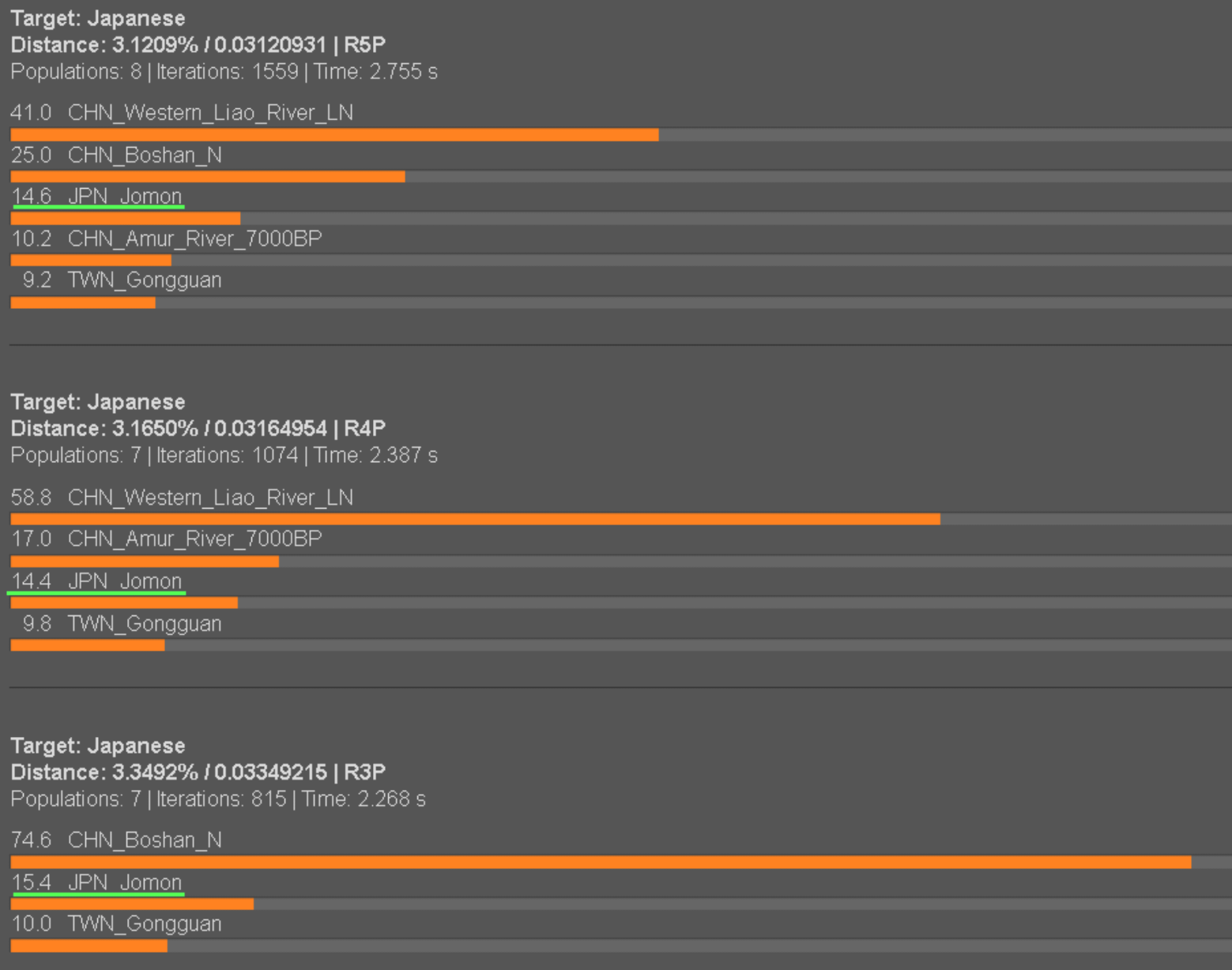主题: 具有绳文基因的日本人在世界上很少见吗?
Are Japanese with Jomon genes rare in the world?
No, because the average Japanese person has ~15% Jomon people-related ancestry,
不是的,因为平均百分之15得日本人有绳文有关的基因,
and one of the, if not the, most prevalent Y-DNA haplogroup (paternal lineage) of the Japanese males (a clade of the quite rare haplogroup D) is traced to Jomon Period people,
而有着相当罕见的单倍群D的分支的日本男性,体内含有的Y染色体的染色体组,要追溯到绳文时期的人类,
not to the Yamato people that started to form its modern genetic makeup with the Yayoi Migration little more than 2,000 years ago.
不是距今至少2000年前的,由弥生人迁移而来,并成为大和民族形成现代基因的那群人。
So, there are certainly more than 100 million people with “Jomon genes”, i.e. genome-wide ancestry ultimately derived from people who belonged to one of the Jomon Period cultures of Japan. Not exactly rare.
所以,现在有大约超过100万人拥有绳文基因,换言之,全基因组的祖先总的来说要追溯到日本人的绳文文化时期之一。这并不罕见。
BELOW: A genetic ancestry model using hundreds of averaged ancient population samples to establish the most likely combination of ancestry components that forms the genetic makeup of an averaged sample of present-day Japanese people.
下图是:一个祖先的基因模型,模型使用数百个祖先的基因样本取平均数,从而建立最可能的血统成分的组合,成分来源于现代日本人的平均基因组成样本。(胖:出现了,单词看得懂,句子在干嘛?)
Testing 3 hypothetical models (one involving a maximum of 3 sample mixtures, another with 4 mixtures, and another with 5 mixtures),
测试了3个假设模型(一个包含3样本混合物的最大值,另一个包括4个混合物,最后一个包括5个混合物),
it’s clear that it’s always necessary to include ~14.4–15.4% ancestry derived from Jomon Period samples from Japan.
很明显,总是有必要包括来自日本绳文时代样本的~14.4-15.4%的血统。
单词:
Jomon genes绳文基因
clade n. [生]分化枝;进化枝
paternal lineage 父系血统
haplogroup 单倍群
Yamato n. 大和人(日本人的祖先);日本人;日本民族 adj. 日本人的;大和民族的
Yayoi adj. 〈日〉(约自公元前200年至公元200年)弥生时代的
genome n. [生]基因组;[生]染色体组
ultimately adv.最后,终于,根本,基本上
exactly 1 adv. 精确地;准确地;确切地
2 <口>(要求得到更多信息)究竟,到底
3 (答语,表示赞同或强调正确)一点不错,正是如此,完全正确
4 (说反话时用)并不,并没有
5 (用于纠正某人说过的话)并非如此,不完全是这样

阿胖彻底歇菜~这篇是在干嘛。